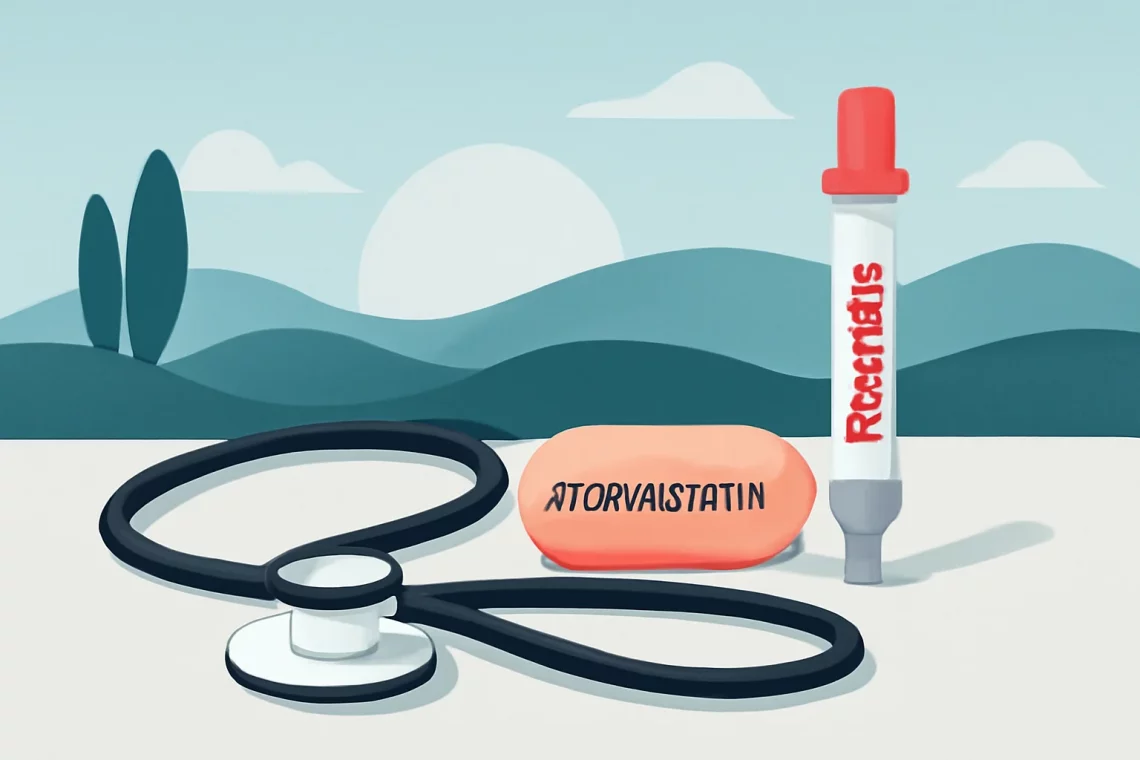-
Ondansetron vs Metoclopramide: Choosing the Right Antiemetic Solution
Ondansetron and Metoclopramide are two medications commonly used to manage nausea and vomiting, conditions that can arise from various causes including chemotherapy, surgery, and gastrointestinal disorders. Both drugs serve important roles in clinical practice, yet they operate through different mechanisms of action and have unique side effect profiles. Understanding their differences, indications, and effectiveness is crucial for healthcare providers and patients alike. Nausea and vomiting can significantly impact a person’s quality of life, making effective treatment essential. Ondansetron, a selective serotonin 5-HT3 receptor antagonist, primarily works by blocking the action of serotonin, a neurotransmitter that can trigger nausea. On the other hand, Metoclopramide is a dopamine receptor antagonist that also…
-
Atorvastatin vs Vytorin: Which Cholesterol Medication Is Right for You?
Atorvastatin and Vytorin are two commonly prescribed medications that play a significant role in managing cholesterol levels and reducing the risk of cardiovascular diseases. Statins are a class of drugs that include atorvastatin, which primarily works by inhibiting an enzyme involved in cholesterol production in the liver. On the other hand, Vytorin combines two active ingredients, ezetimibe and simvastatin, to lower cholesterol levels through dual mechanisms: reducing cholesterol absorption in the intestines and decreasing its production in the liver. The global prevalence of high cholesterol levels and associated cardiovascular conditions has made the management of these health issues increasingly important. Millions of people rely on medications like atorvastatin and Vytorin…
-
Atorvastatin vs Repatha: Which Cholesterol Treatment is Better?
Atorvastatin and Repatha represent two distinct approaches to managing cholesterol levels and reducing cardiovascular risk. As cardiovascular diseases continue to be a leading cause of mortality worldwide, the importance of effective cholesterol management cannot be overstated. Elevated levels of low-density lipoprotein (LDL) cholesterol are a significant risk factor for heart attacks and strokes, prompting the need for medications that can effectively lower these levels. Atorvastatin, a member of the statin family, has been widely used for years as a first-line treatment for high cholesterol. It works by inhibiting an enzyme involved in cholesterol production in the liver, thus reducing LDL cholesterol levels. On the other hand, Repatha, a monoclonal antibody,…
-
Zepbound vs Trulicity: A Comprehensive Comparison of Diabetes Medications
In recent years, the management of diabetes has evolved significantly, with the introduction of various medications aimed at improving blood sugar control. Among these medications, Zepbound and Trulicity have emerged as popular choices for patients and healthcare providers. Both drugs belong to the class of glucagon-like peptide-1 (GLP-1) receptor agonists, which have shown effectiveness in managing type 2 diabetes. The increasing prevalence of diabetes worldwide has led to a surge in interest surrounding these medications, as individuals seek effective and efficient solutions to maintain their health and well-being. Understanding the differences and similarities between Zepbound and Trulicity can help patients and caregivers make informed decisions about their diabetes management options.…















